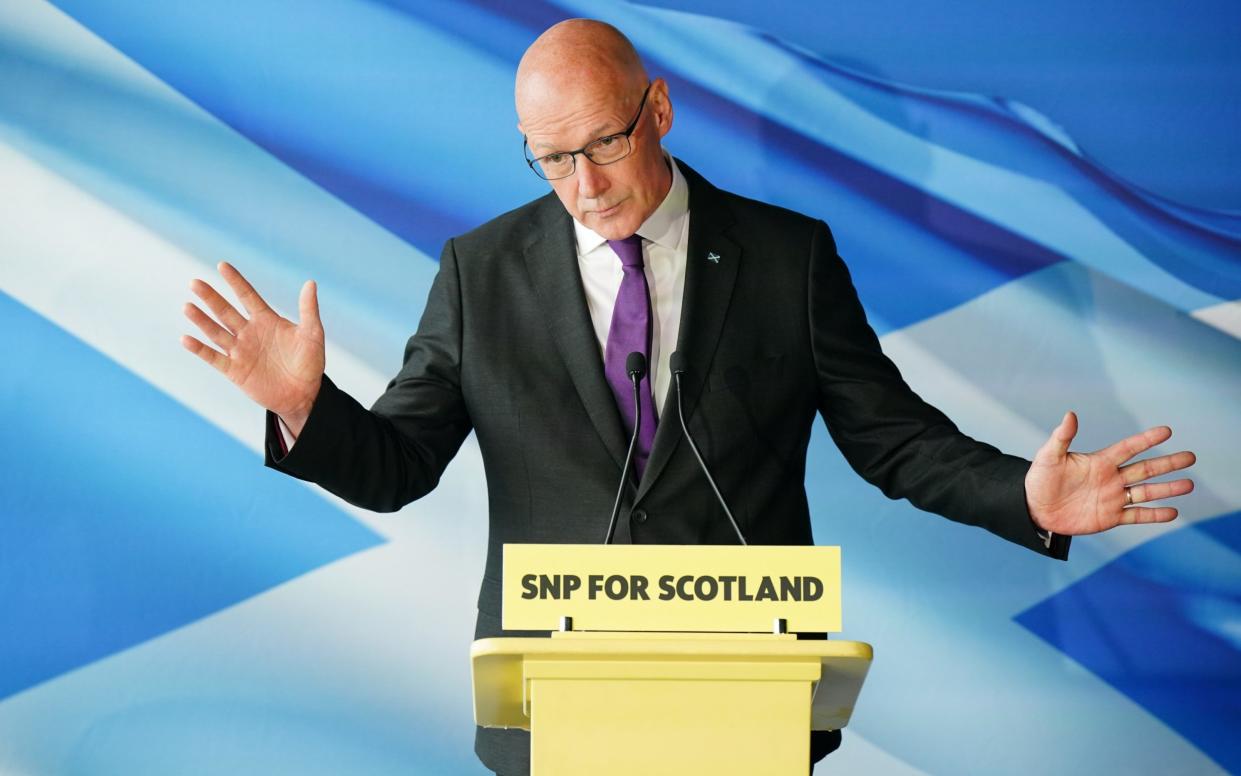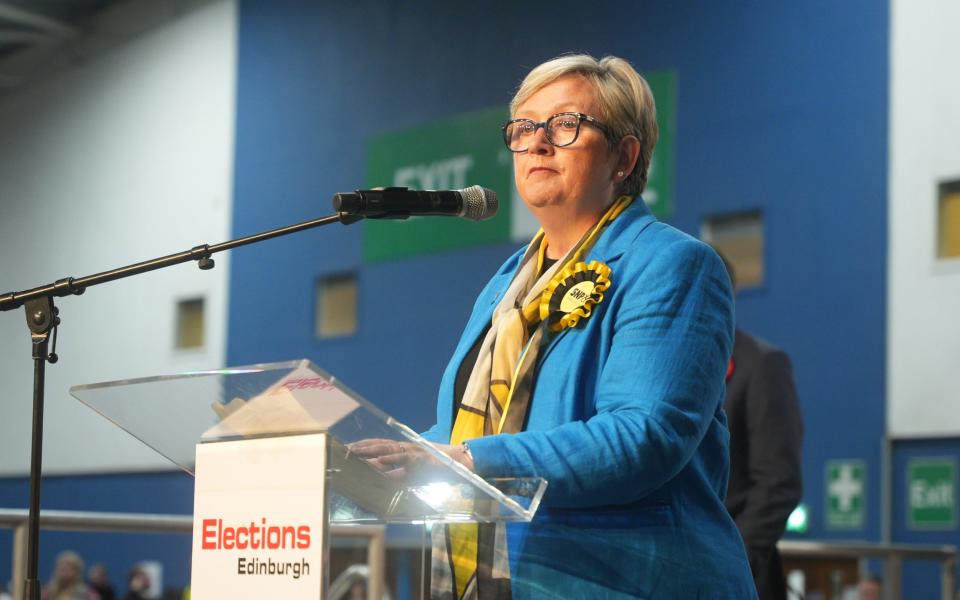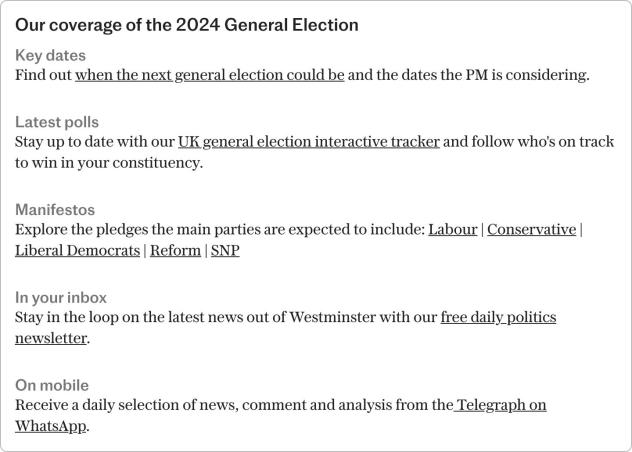Swinney puts independence plan on hold after ‘cataclysmic’ election

John Swinney has put his push for independence on hold after an era of SNP domination of Scottish politics came to a spectacular end.
The First Minister admitted his party had failed to convince Scots of the “urgency” of independence and said he would now take time to listen to the voters who inflicted such a devastating defeat.
The SNP won just nine seats at Thursday’s general election – compared to the 48 it claimed under Nicola Sturgeon in 2019 – as Labour surged from one MP to 37 in a landslide win, its first victory north of the border in 14 years.
Despite Mr Swinney’s pledge to restore unity to his party, recriminations broke out as the scale of the loss became clear.
Some attacked Nicola Sturgeon, whom Mr Swinney served as deputy throughout her eight year tenure in Bute House, saying the result was a reflection of her legacy.
Ms Sturgeon, in an appearance as an election night pundit on ITV which is believed to have been highly paid, denied she was solely to blame and claimed her party had now campaigned hard enough on independence.
Distillery press conference
At a press conference in an Edinburgh distillery, a gloomy Mr Swinney admitted it had been an “incredibly tough night” and acknowledged the SNP had failed to successfully make the case for its foundational aim.
“I have to accept that we failed to convince people of the urgency of independence in this election campaign,” Mr Swinney said.
“Therefore, we need to take the time to consider and to reflect on how we deliver our commitment to independence – which remains absolute. We need to get that approach correct in the forthcoming period.
“I accept that we need to engage with, listen to and learn from the people of Scotland on how we take forward our arguments for independence.”
Mr Swinney had gone into the election claiming winning 29 Scottish seats – a majority – would give him a mandate to open independence talks with the UK Government.
However, the party fell catastrophically short of that target, with seats falling to Labour all across the central belt. Labour won a clean sweep of all six Glasgow constituencies, a highly symbolic victory, while the SNP was also routed in Edinburgh.
As the likely outcome of the election in Scotland became clear, one SNP candidate in Lanarkshire said: “I’m going to lose, we’re all going to lose”.
‘It’s all your fault’
When it was put to Ms Sturgeon, who remains an SNP MSP, that figures within her party would be saying to her “it’s all your fault”, she replied: “Absolutely, I don’t doubt that at all.”
She later suggested that independence had not been prominent enough in the campaign run by Mr Swinney.
The former First Minister said: “I think one of the questions out of the SNP result tonight is whether they’ve left themselves between two stools on the independence question because I think, in my view, it wasn’t really put front and centre.”
After facing criticism live on air from Joanna Cherry, one of the most prominent of the dozens of SNP MPs ousted on Thursday, Ms Sturgeon raised her own record of winning elections.
“I take my share of responsibility for where the party is now,” she said. “But I think for anybody in the current leadership to take refuge in how it’s somehow all my fault…
“I think would be taking the easy solution or response to this, rather than looking seriously and hard at what the real issues are.”

A further split emerged within the party between those seeking to downplay the significance of the defeat, claiming it had been driven by a desire to punish the Tories, and those demanding self-reflection and change.
Across the UK, Labour’s vote rose by just 1.6 per cent, with Sir Keir Starmer’s landslide delivered largely by a collapse in the Tory vote. But in Scotland it surged by 17 points.
Meanwhile, the SNP’s vote share fell by more than 15 points and the party secured more than half a million fewer votes than it did in 2019.
‘Tory incompetence’
Angus Robertson, the SNP culture secretary, claimed his party was set to lose so many seats because voters are fed up with Tory “incompetence”, rather than the SNP’s failings in government.
Keith Brown, the SNP’s deputy leader, hailed his party’s “fantastic job in government” despite evidence of mounting disillusionment over its handling of the health service, education and the ferries procurement fiasco.
However, others demanded that the SNP examine its own performance rather than attempt to blame other factors.
Stephen Flynn, the party’s Westminster leader, who will return to the Commons with just eight nationalist colleagues, admitted the SNP would be “beat in Scotland, and beat well”.
He said getting into “winning shape” would require some within his party to “open the curtain and look at some of their own skeletons and realise that we’ve not been doing things as well as we possibly could have been”.
Meanwhile, Mhairi Black, Mr Flynn’s former deputy, who did not seek re-election, said what had been expected to be a difficult night for the SNP had turned out to be “cataclysmic”.
She added: “Blaming voters, or doing anything other than serious self-reflection is precisely the kind of attitude that has turned so many away from the SNP.”
Multiple problems
The result is likely to create turmoil for Mr Swinney on multiple other fronts.
The already cash-strapped party is set to see its short money – funds paid to opposition parties at Westminster – reduced from around £1.3 million per year to less than £350,000.
Several ousted MPs are also likely to attempt to win SNP candidacies for the 2026 Holyrood elections, raising the prospect of vicious internal selection battles that could undermine Mr Swinney’s attempts to restore unity.
The police investigation into SNP finances – with Ms Sturgeon arrested and her husband, former party chief executive Peter Murrell, charged with embezzling party funds – also remains unresolved.
Ms Sturgeon strongly denies wrongdoing while Mr Murrell has not publicly addressed the charges against him.
Speaking with his party’s new MPs in Glasgow following the landslide, Anas Sarwar, Labour’s Scottish leader, said he had already set his sights on replacing the SNP at the next Holyrood elections.
He said Labour had put an end to “14 years of Tory chaos” but that “there have been 17 years of SNP failure and incompetence too”.
He added: “So today we also redouble our efforts so we together can deliver change in 2026 with a Scottish Labour government.”


 Yahoo News
Yahoo News 
